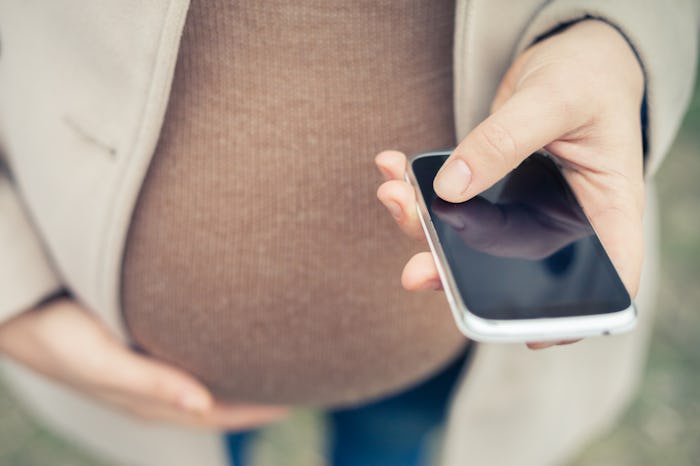
Are There Different Types Of Contractions? Here Are The 3 To Know About
Wouldn't it be easy if your developing baby could just text you updates about his progress? You would know exactly when he moved, slept, and grew. Best of all, you could get real-time notifications about your countdown to delivery, so you'd know exactly when to expect your little one's arrival. Unfortunately, real life is less precise, so you have to listen to your body to recognize these crucial signals. And when you're waiting for baby to arrive, you're probably tuned in to any sign of a contraction. So are there different types of contractions, or should you head to the hospital as soon as things feel tense down there?
There are about three different types of contractions, and to make matters more complicated, they do not all signify the start of labor. In fact, it can be tricky to tell the so-called false labor contractions apart from the real-deal ones. Here is a quick rundown of the three main varieties of contractions, as well as some descriptions to help you identify what type of contraction you may be experiencing.
First, Braxton Hicks contractions may occur any time after about the midway point of your pregnancy, as noted in What To Expect. Also known as practice contractions, they are generally more random and less painful than labor contractions, according to another Romper article. However, if it's nearing the end of your pregnancy,then these muscle cramps can start to mess with your head and seem like the real thing.
Next, some women experience false labor contractions. According to Baby Center, false labor contractions are irregular, centered in your abdomen, and able to subside when you change positions. They can still be painful, and of course you can check with a doctor if you're unsure of whether your contractions are still just bluffing.
Lastly, there are the true labor contractions that signify your baby is on his way out. As explained by the Mayo Clinic, true labor contractions occur in a regular pattern, last for about 30 to 70 seconds, and do not stop if you change position or move around. If this is the case, then your body is sending a big signal that your baby is set to debut soon.
Obviously, if you are concerned about your contractions, there is nothing wrong with going to your doctor or the hospital. But if you want to save yourself a possible trip, keep these things in mind.